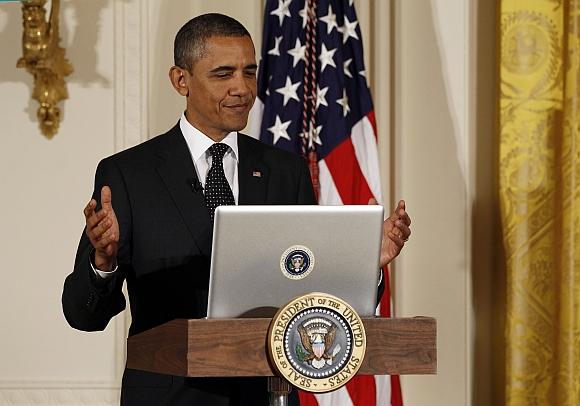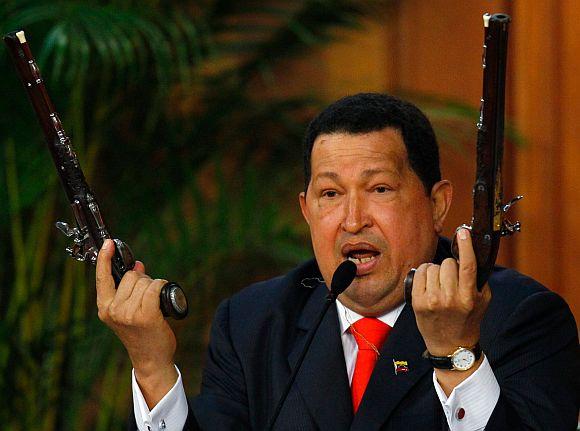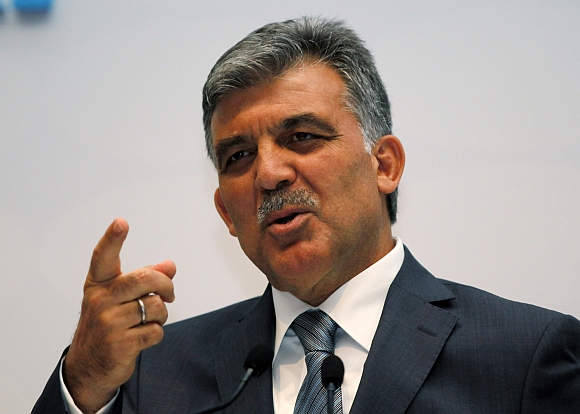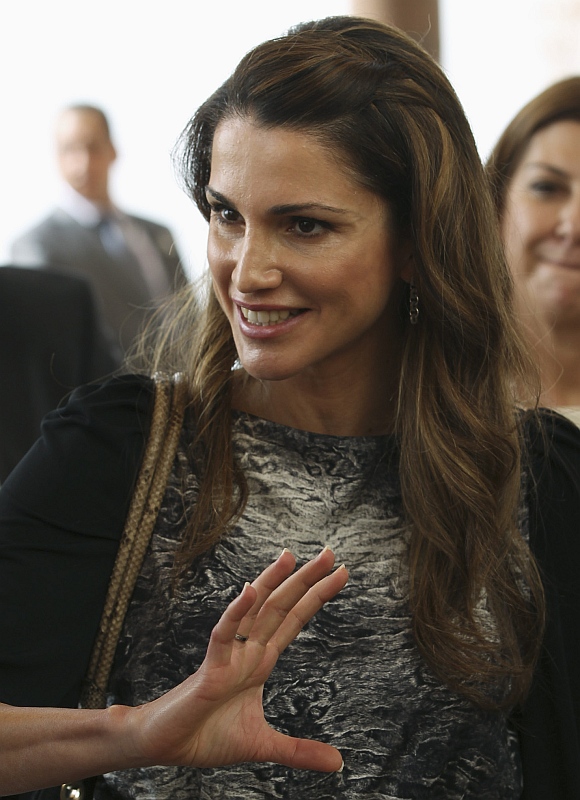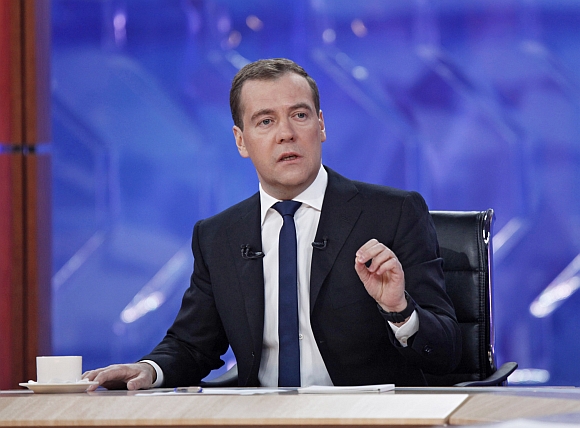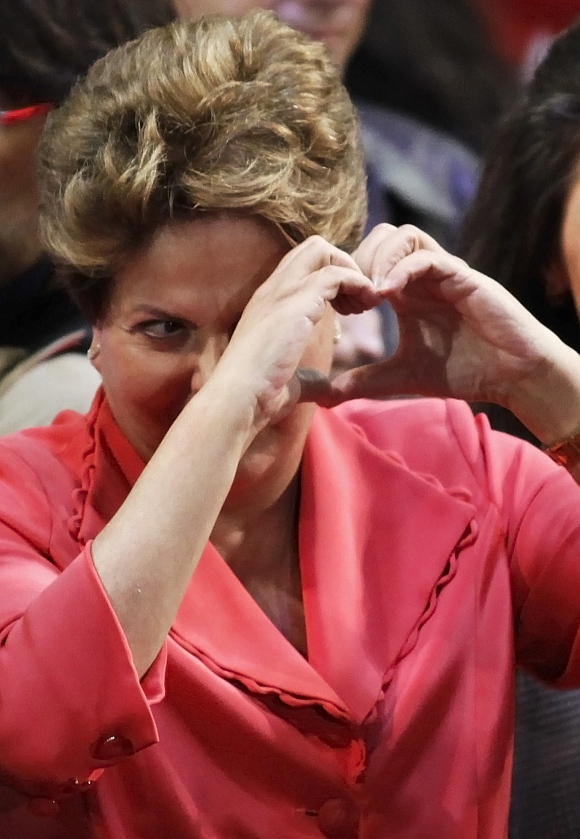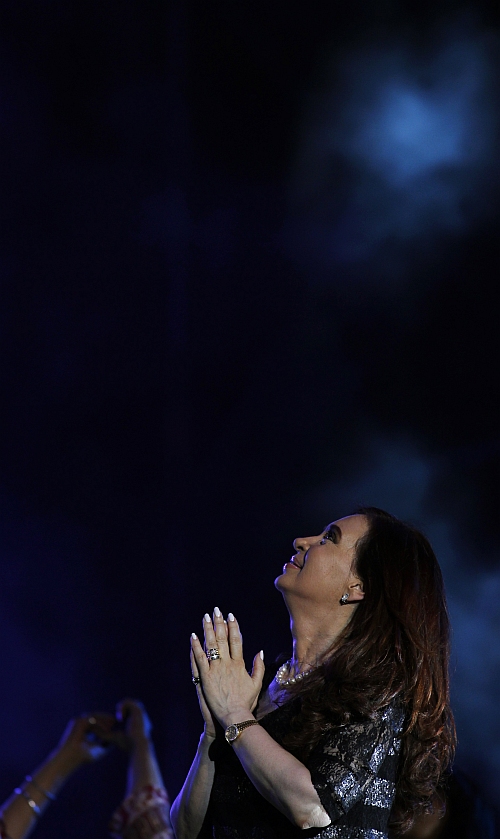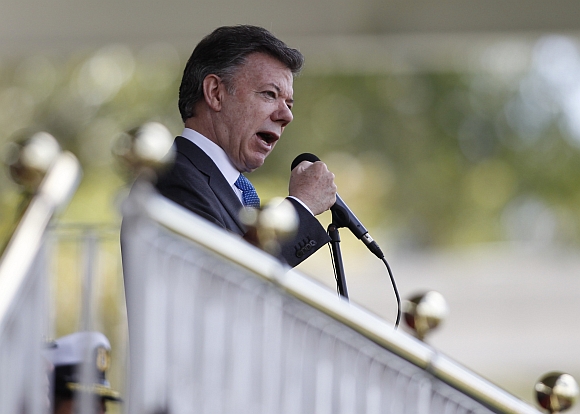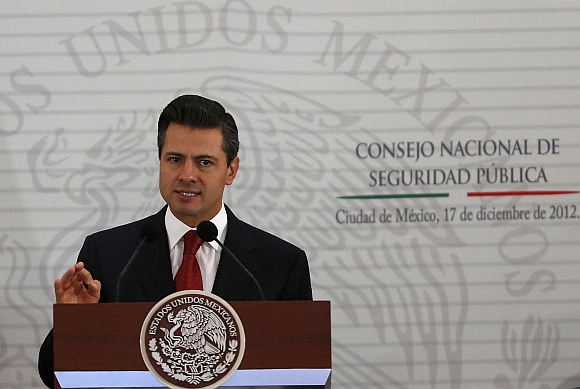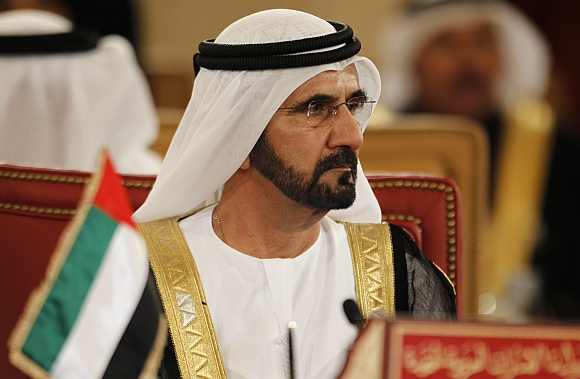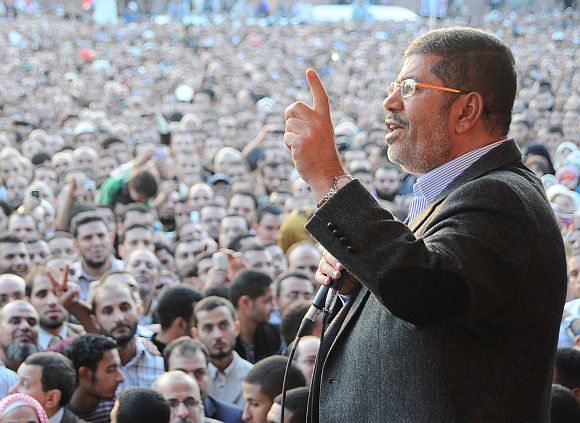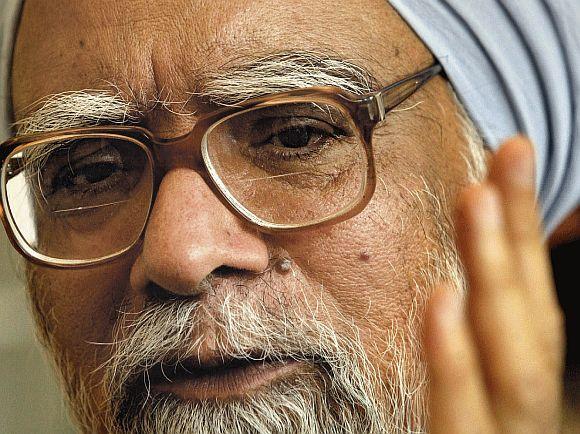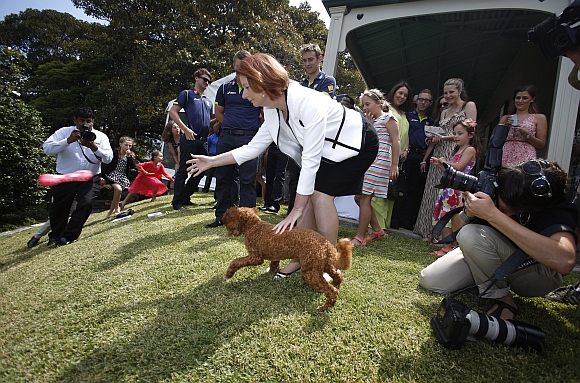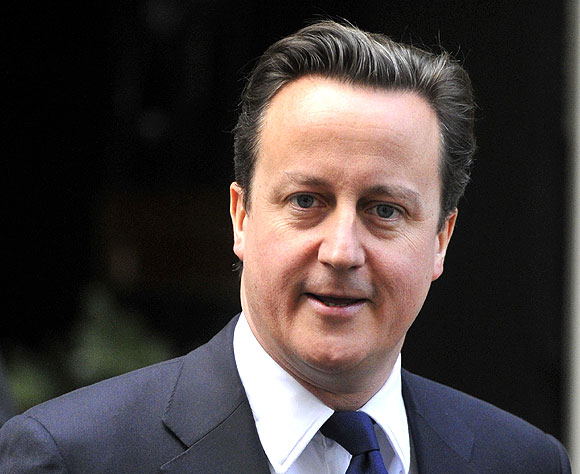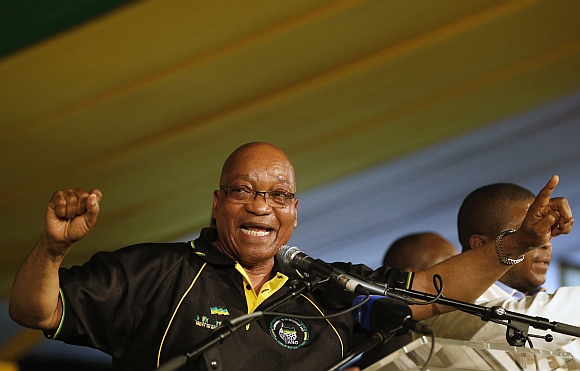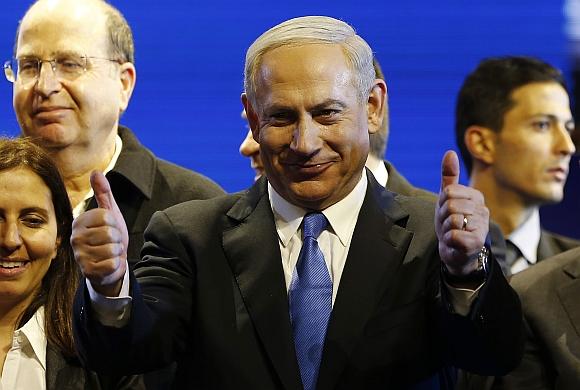 | « Back to article | Print this article |
Obama No 1, Manmohan No 19 on top tweeting leaders list
The Digital Policy Council, an international, non-partisan 'think tank' on 21st Century Governance, has released its 2012 ranking report on the use of social media by heads of state.
United States President again maintained the top spot of all world leaders, with a vast 24 million followers, adding 15 million followers in one year.
The 2012 re-election of President Obama broke several Twitter records. Following the news that he had been declared the winner, Obama's account sent out the tweet: "Four more years" along with a photo of himself and the first lady, which became the most retweeted tweet of all time.
Throughout the day, more than 31 million election-related Tweets were sent out, creating the most tweeted-about event in US political history.
Click NEXT to see more leaders...
No. 2: President Hugo Chavez of Venzuela
President Hugo Chavez of Venzuela grew his account by two million followers and maintained the number 2 spot, although he had 20 million less followers than President Obama in 2012.
When he found himself fighting an election campaign from his sick bed in Cuba, Twitter became his main tool for communicating with the electorate, a tool predominantly used for challenging his opponent and fighting the rampant rumors about his ill-health.
There's no doubt that Twitter had a hand in rallying his 3.8 million followers to secure his re-election in October.
Click NEXT to see more leaders...
No. 3: President Abdullah G l of Turkey
President Abdullah G l of Turkey increased his following by over 2 million people. An early adopter of Twitter, he tweets mainly in Turkish but important statements are also made in English.
Following his visit in 2012 to Silicon Valley he tweeted, "This is the first time a Turkish president travels to this region of the US. Here is where technology that changes our lives is born."
Click NEXT to see more leaders...
No. 4: Queen Rania, the queen consort of the king of Jordan
Queen Rania, the queen consort of the king of Jordan, grew her account by over one million followers despite the fact that she continued to scale back her public activities since facing criticism that she was playing too prominent a role in 'running Jordan'.
On her Twitter account, followed by more than two million people, she describes herself as "a mum and a wife with a really cool day job."
Click NEXT to see more leaders...
No. 5: Russian President Dmitry Medvedev
A fresh entry into the top 10 in 2012 was Russian President Dmitry Medvedev. He chooses to tweet in his native language and in English, with separate accounts for each.
In 2010, a personal account in the president's name was established in both languages and currently his Russian language @MedvedevRussia has the largest following.
Following this trend, 2012 saw several other leaders open Twitter accounts in both their native language and English in order to reach a larger audience.
These leaders are the prime ministers of Japan, Thailand, and Kazakhstan, the presidents of Azerbaijan and Turkey; and the governments of Serbia and Montenegro.
Click NEXT to see more leaders...
No. 6: President Dilma Rouseff of Brazil
President Dilma Rouseff of Brazil remained at spot #6 in 2012. At the time of her election in 2011 she had already 330,000 followers and while her activity dwindled after the election, her account continued to gain followers, indicating a desire on the part of the people of Brazil to connect with their leader.
Click NEXT to see more leaders...
No. 7: Argentinean President Cristina Fern ndez De Kirchner
When Argentinean President Cristina Fernandez De Kirchner appeared on Twitter in 2010, Argentine politics were utterly transformed as Twitter was quickly established as the central battleground between politicians and citizens.
During the re-election of Chavez in 2012, the Argentine president sent five messages in quick succession, congratulating Venezuela with 'Your victory is also ours'.
Click NEXT to see more leaders...
No. 8: Colombia's President Juan Manuel Santos
Colombia's President Juan Manuel Santos was new to the Top 10 in 2012. At number 8, President Santos' had grown his followers by well over 1 million since 2011.
When the previous president Alvaro Uribe handed on the presidency to Santos, he expected his former defense minister to continue his policies. Uribe became a fixture on Twitter, proclaiming his record on security, education and helping the poor.
As President Santos began to make it clear that he had his own agenda for Colombia in 2012, the tweets got tougher -- today the president must stay attuned to Uribe's tweets and respond to his citizens accordingly.
Click NEXT to see more leaders...
No. 9: President Enrique Pe a Nietoin of Mexico
Remaining in the top 10 in 2012 even though the country elected a brand new leader, is President Enrique Pena Nietoin of Mexico, in December.
His tweet on election day, "Now is the time to start a new stage of work, for the good of Mexico," was widely shared.
Click NEXT to see more leaders...
No. 10: Sheikh Mohammed, prime minister of the UAE
Sheikh Mohammed, prime minister of the UAE and ruler of Dubai ranked #10 of the world leaders using Twitter. In 2012 His Highness Sheikh Mohammed gained 910,000 followers in just one year to surpass 1 million followers.
In a recent study, he was ranked as the second most connected Twitter user in the country. He regularly shared his thoughts, future plans, attended events and various achievements.
Some saw his tweets as 'an image of equality, encouragement and comfortable interaction with citizens'.
Click NEXT to see more leaders...
No. 14: Egypt President Mohamed Morsi
In the wake of the Arab Spring, 2012 saw the addition of Egypt's President Mohamed Morsi at number 14. In September, Egyptian President Mohammed Morsi logged what he said was his first post on Twitter, which he dedicated to martyrs of the Egyptian uprising in 2011 and to the people of Syria.
In his first tweet, Morsi wrote: "Want to dedicate 1st tweet to martyrs of #Jan25 revolution and brave #Syrians... Muhammed #Morsi." Interestingly, Morsi was watched closely from another online tool, analyzing how close he is working on internal Egyptian affairs.
Social media watchdog website 'Morsi Meter' monitored Morsi's achievements and how they measure up to the 100-day pledge he made before he assumed office earlier in the year.
Click NEXT to see more leaders...
No. 19: Prime Minister Manmohan Singh
As per Digital Policy Council, Prime Minister Manmohan Singh became the 19th-most followed leader of the world on Twitter.
Dr Singh is ahead of British Prime Minister David Cameron and Australian Prime Minister Julia Gillard, both of who were left behind in less than 12 months time.
Click NEXT to see more leaders...
No 20. Australian Prime Minister Julia Gillard
Australia's Prime Minister Julia Gillard throws a toy for her dog Reuben at an afternoon tea for Australia's and Sri Lanka's test cricket teams at Kirribilli House in Sydney.
Photograph: Tim Wimborne/Reuters
Click NEXT to see more leaders...
No 23. British Prime Minister David Cameron
One world leader who experienced a change of heart toward social media was the UK prime minister who, in October 2012, finally adopted a Twitter handle in his own name @David_Cameron.
The account clocked up more than 50,000 followers within hours of his debut. For several years, Cameron had been reluctant to follow in the footsteps of many other high profile politicians in joining Twitter, making disparaging remarks about the platform in 2009.
Click NEXT to see more leaders...
No 24. South Africa President Jacob Zuma
South Africa's President Jacob Zuma celebrates his re-election as party president at the National Conference of the ruling African National Congress in Bloemfontein.
South Africa's ruling ANC re-elected Zuma as its leader on Tuesday, setting him up for seven more years as head of state of Africa's biggest economy.
Photographer: Mike Hutchings/Reuters...
No 28. Israel Prime Minister Benjamin Netanyahu
Israel's Prime Minister Benjamin Netanyahu (centre) is seen during the launch of his Likud Beiteinu party campaign ahead of the upcoming January 22 national elections, in Jerusalem.
Other leaders who made it to the list are Thailand Prime Minister Yingluck Shinawatra, Netherlands Prime Minister Mark Rutte, Kenya Prime Minister Raila Odinga, and Dominican Republic President Danilo Medina.
Photographer: Ronen Zvulun/Reuters
TOP photo features of the week
Click on MORE to see another set of PHOTO features...
